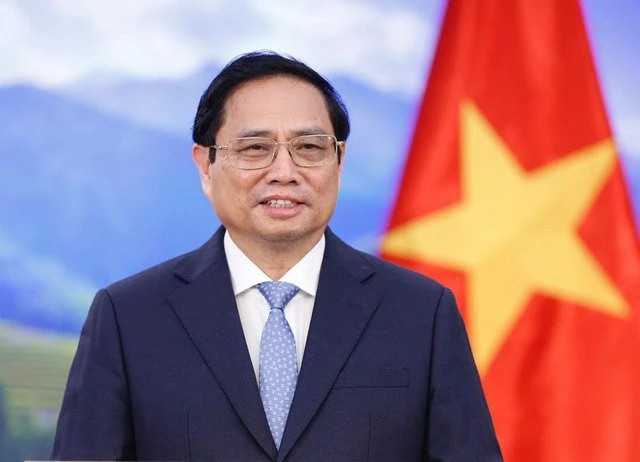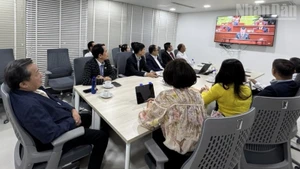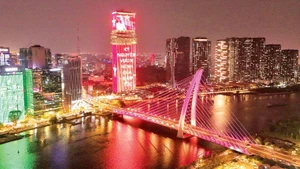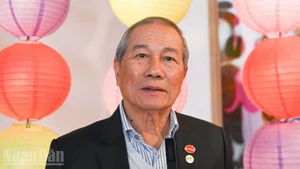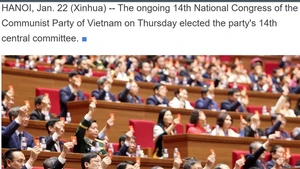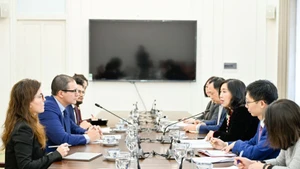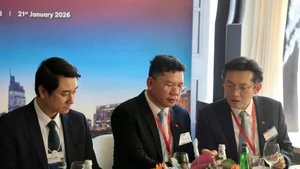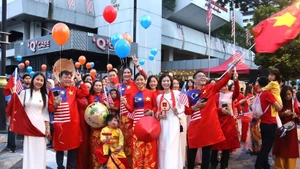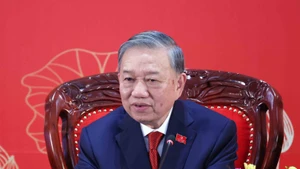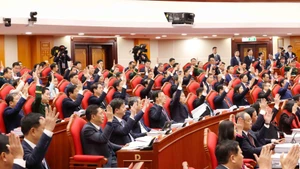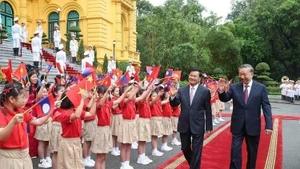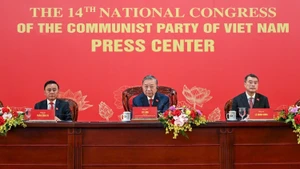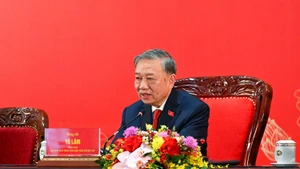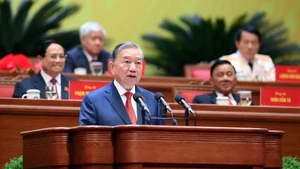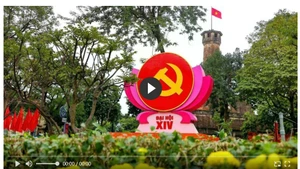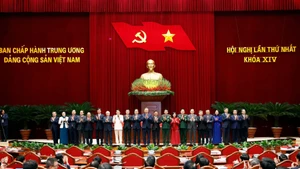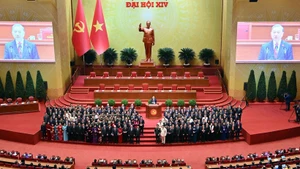Deputy PM Gang shared that the WEF-54, themed “Rebuilding Trust”, will take place from January 15-19, marking the largest gathering since the onset of the COVID-19 pandemic, adding that with nearly 100 senior leaders from countries and international organisations and around 3,000 executives from global corporations and businesses, this year's meeting will stand out as the world’s largest event at which to share ideas, engage in compelling discussions on the prospects of the world economy, explore new trends, and envision global development.
She also added that the event will also encourage economic, trade and investment connectivity among nations and businesses, while pooling global collective strength to generate new growth impetuses and address common challenges amid existing difficulties, risks, and uncertainties, especially through public-private partnership.
This will present a crucial moment for Vietnam to showcase its achievements, development directions and strategies, and foreign policies, delivering a message about a dynamic and innovative Vietnam as an attractive destination for global corporations, she noted.
She went on to say that PM Chinh’s attendance at the meeting, along with his comments and proposals on the global development situation and solutions to stimulate growth and address emerging challenges, will further affirm Vietnam's responsible and effective contributions to peace, development, and common concerns, thereby enhancing the country's position and reputation on the international stage, especially within the global business community. The meeting will also offer an opportunity for Vietnam to enhance exchanges and promote cooperation with Switzerland, other partners, and international organisations across various sectors, especially in economics, trade, and investment in line with the foreign policy set by the 13th National Party Congress.
She revealed PM Chinh’s busy agenda at the meeting, including delivering speeches at major sessions, chairing dialogues with executives of global corporations, meeting bilaterally with leaders of countries, international organisations, and businesses.
According to the Deputy FM, from the experience and lessons of Vietnam and ASEAN, the PM will propose both immediate and long-term solutions to strengthen international solidarity, rebuild trust, and promote cooperation among nations, between governments, businesses and partners. Vietnam's responsible contributions to addressing global challenges will also be highlighted, particularly in its areas of strength such as food security, smart agriculture, climate change adaptation, and just energy transition.
The PM will share experience in macroeconomic management, and Vietnam's readiness to attract investment, especially in priority areas such as high technology, research and development, green transition, digital transformation, and circular economics.
Lastly, the Vietnamese delegation will engage in discussions and propose directions to leverage the potential, strengths, and central role of ASEAN and Vietnam in promoting growth while consolidating trade and investment linkages, global supply, and value chains. This aims to contribute to economic recovery and resilience of the global economy, she added.
At the invitations of Hungarian PM Viktor Orbán and Romanian PM Marcel Ciolacu, immediately after attending the WEF annual meeting in Davos, Prime Minister Pham Minh Chinh and his wife will pay official visits to Hungary and Romania from January 16-22. These are the first delegation exchanges at the Prime Minister level between Vietnam and Hungary in the past seven years and between Vietnam and Romania in five years.
She said Hungary and Romania were among the first 10 countries in the world to recognise and establish diplomatic relations with Vietnam after it gained independence. Looking back over the past more than 70 years, the governments and peoples of the two countries have always given Vietnam great affection and support, both in the past fight for independence and national reunification as well as in the innovation and socio-economic development at present.
During the COVID-19 pandemic when Vietnam was facing the most difficulties, Hungary and Romania were the first countries to provide Vietnam with hundreds of thousands of vaccine doses and medical equipment, helping the country overcome the epidemic soon and open the doors for economic recovery, she added.
Hungary and Romania have also actively supported Vietnam in the comprehensive partnership and cooperation between Vietnam and the European Union (EU), especially in the process of negotiating, signing, and ratifying the EU-Vietnam Free Trade Agreement (EVFTA) and the EU-Vietnam Investment Protection Agreement (EVIPA). Romania made every effort to hasten the signing of the EVFTA on the last day of its rotating EU presidency, meanwhile Hungary was the first EU member state to ratify the EVIPA.
Regarding the foundation of traditional friendship spanning three-quarters of a century and in the context of a complex world situation, the Deputy PM said the PM’s visits play a very important role in continuing to consistently implement the foreign policy of independence, self-reliance, multilateralization, and diversification of foreign relations, especially with traditional partners and friends.
During the visits, PM Chinh will hold talks, meetings, contacts, and working sessions with senior leaders of Hungary and Romania, and will also visit localities, universities, research centres, businesses, Vietnamese friendship associations with Hungary and Romania, and the Vietnamese communities in the two nations.
The visits will contribute to further increasing political trust, strengthening the traditional friendship and mutual support between Vietnam and the two countries; bringing traditional areas of cooperation such as economics, trade, labour, culture, education, and human resource training to a new stage to meet the development requirements of each country; promoting collaboration in fields of strength and potential such as science and technology, information and communication, and pharmaceuticals and innovation; and further tightening the friendship between the people of Vietnam and those of Hungary and Romania.
